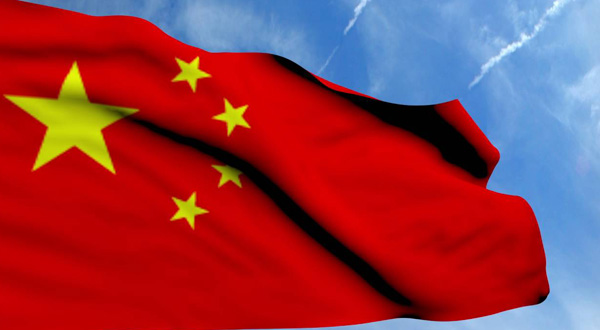Now - 18:35:30
Communist party: deciphering the abbreviations of the name of the party who played an important role in the history of our country
The Background of this reduction originates in the nineteenth century. It all began with small groups of socialists, who were persecuted in the Russian Empire. All this has resulted in a powerful and well-organized mass party, which in the final called party. The decryption of this abbreviation is sufficient and simple means of ideological and a geographic component. However, everything in order.

The Establishment of socialism
Nineteenth century in General is very rich in various kinds of action against the government for political and civil rights. Began this is a battle of Decembrists, and then picked up by numerous University clubs and social organizations. The ideas of socialism have been actively promoted and promoted during the reign of Alexander II. The liberal-democratic attitude of the majority of society was fertile ground for the development of the ideas of liberalism and social-democratic views. Populism has also contributed to the spread of socialist ideas in the vast expanses of Russia. Organization «Land and freedom" purposefully engaged in the popularization of the ideas of socialism in our country. All these organizations were, so to speak, the forerunner of a huge and powerful Communist party. Interpretation of the word sounds like the Communist party of the Soviet Union. However, until her appearance was still quite far away. In the 80 years of the nineteenth century George Plekhanov founded the first Russian organization, who stood on the positions of socialism and Marxism, which subsequently equated communism with minor variations.

The Vicissitudes of the formation of socialist organisations
However, “liberation of labor Group” was small and not enjoyed great influence among the Russian socialists. George V. stepped up its activities and met with similar groups from Kiev and Minsk, on the basis of this activity, he met with V. I. Ulyanov. Initially the views of the two leaders of the socialist movement coincided, and mutual efforts they have made every effort to have these scattered through all the cities and villages of the Russian Empire, groups and cells have developed into one party. What happened at the founding Congress in Minsk, it is the same party, which in the future ideological and personal changes formed the Communist party. Transcript established in 1898, the party was significantly different from the familiar to the Communist party, when it was called the education of the RSDLP, which means the Russian Social-Democratic labour Party.
Recommended
"Knowledge is light and ignorance is darkness": the value, meaning and alternatives
There are some sayings that would seem to need no explanation, such as “teaching & ndash; light and ignorance – darkness”. But some still do not understand their meaning. But not only for such people is written by our article. I...
What was invented by Mendeleev for the army. The history and fate of the invention
D. I. Mendeleev was a brilliant Russian scientist-polymath, who made many important discoveries in various fields of science and technology. Many people know that he is the author of “Fundamentals of chemistry" and the periodic law of chem...
The origin of the Slavs. The influence of different cultures
Slavs (under this name), according to some researchers, appeared in the story only in 6 century ad. However, the language of nationality bears the archaic features of the Indo-European community. This, in turn, suggests that the origin of the Slavs h...
Organizational and Ideological differences
However, this was not the only metamorphosis that occurred with the name of the party. As mentioned above, the founding fathers of the new political Institute Georgi Plekhanov and Vladimir Ulyanov in the future very far differed in their views on Russia's future, its reconstruction and the methods of carrying out these transformations. This resulted in open clashes of the supporters of the first and second leaders, and then reflected in the organizational procedure of the party. At the next Congress (after the founding), there was a division of the party into Mensheviks headed by Plekhanov and the Bolsheviks, led by Lenin, however, the external unity of the party remained until 1917. However, the ideological and methodological differences led to the removal of Lenin from the General publication of party - Newspapers “spark”. The split within the party increasingly intensified, Plekhanov and his supporters stood on a moderate social-democratic positions, chosen as the main method of transformation, the reform, and the Bolsheviks differed radical attitudes and the basic method of social change have accepted violence in the form of the proletarian revolution.

Creation of the Russian Communist party
In April 1917 there was a long-overdue event. The Bolshevik faction finally distanced himself from the party, which was represented by moderate Mensheviks and created my own RCP (b), which will form the basis of future Communist party. Decoding is a new Bolshevik organization accurately describes its ideological beliefs and is as follows: the Russian Communist Party (Bolsheviks). Clarification with the letter “B” in brackets even more emphasized the difference of the party from the classical teachings of Western European social democracy and even communism, Lenin made some changes in the Karl Marx concept, adapting it to Russian realities, but it was not the final name of the party. After the victory of the armed uprising in October 1917 the RCP (b) again changed its name, wishing thereby to emphasize their universality and emergence as a ruling party. From 1925 it was called the CPSU (b), and this name was transformed in 1952 by the Communist party. Decoding the name in 1925 changed only slightly, the word “Russian” was replaced by “Russian”, and everything else remained unchanged.
The Irony of the people and the official abbreviation

Like any other political organization, it had governing bodies that also received abbreviation.In our case, the CPSU Central Committee, the transcript sounds like the Central Committee of the party. During the presidency of Yuri Andropov, who was the chief of the State Security Committee, the people jokingly renamed the main body. It was called the Cheka, the Communist party. Decoding this name is ironically interpreted as KGB party Committee. And security officers were called employees of the state security of the USSR. Thus, the interpretation of the word of the Communist party shows us the historical evolution of the name, changing ideological concepts and the extension of influence of this political institution.
Article in other languages:

Alin Trodden - author of the article, editor
"Hi, I'm Alin Trodden. I write texts, read books, and look for impressions. And I'm not bad at telling you about it. I am always happy to participate in interesting projects."
Related News
the Glass – an ancient artifact that was found and used by man. It was found, because no man has invented and made the first glass. Most likely, the first came from volcanic lava are still many millions of years ago. T...
In modern historiography known as the eighty years ' war, Eighty years war (1568 - 1648) – fighting the Seventeen provinces (a personal Union of States in the Lower countries) for independence against the mightiest in Europe...
The combination is... the meaning of the word
In this article let us examine the word “combination”, meaning, etymology and usage in various fields.Etymology and expressionsNoun occurred from late Latin combinatio, meaning "Union, combination”. It, in t...
Azimuthal projection: definition, types and classification
to transfer the three-dimensional object, you must use a special projection. In cartography there are many types of projections for different regions of the earth's surface. One of them is azimuthal projection.What is the projecti...
Method of analysis of hierarchies
For the adoption of certain decisions of administrative nature, and to tentatively predict likely outcomes, a person entrusted with decision-making, often faced with considerable number of interdependent elements, the system which...
A feudal society. Class of feudal society
Feudal society was considered almost universal form of management for Eurasia. Most of the peoples that inhabited it, passed through this system. Next we shall consider what was feudal society. CharacteristicsDespite some changes ...






















Comments (0)
This article has no comment, be the first!